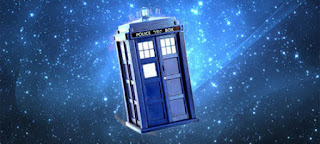Time Travel for Beginners
Fr. Tony’s Midweek Message
May 3, 2017
“The
Lord Jesus on the night when he was betrayed took a loaf of bread,
and
when he had given thanks, he broke it and said,
‘This
is my body that is for you. Do this to remember me.’” 1 Cor 11:23-24
There are different ways of
remembering. One is nostalgia, fleeing
from the present moment and losing yourself in some moment of the past. This tends to be isolating, replacing the
living, breathing people around us with the images and mental ghosts we have of
people from our past. Nostalgia goes
well with other isolating behaviors. The
half-drunk middle aged man sitting alone in a sports bar remembering his glory
days as a high school football star comes to mind. The other form of remembering, recollection,
is nostalgia’s opposite. It is when we
actively bring people and incidents from our past into the present moment. A widow who suddenly feels the presence,
there next to her, of the departed spouse is actually bringing him to the present
moment, not fleeing to it in the past. Frederick Buechner writes in Wishful Thinking, “When
Jesus said, ‘Do this in remembrance of me,’ he was not prescribing a periodic
slug of nostalgia.”
Theologians often say that the Holy
Eucharist is a re-presentation of the
sufferings of Jesus on the Cross, that is, a setting before us once again of
what went on before. It is not a
re-enactment or an additional offering up of Jesus. The Prayer Book in the Rite I Holy Eucharist describes
it this way: “[Jesus] made there, by his
one oblation of himself once offered, a full, perfect, and
sufficient sacrifice, oblation, and satisfaction” (p. 334, emphasis
added). The point is that the Eucharist
does not recreate Jesus’ offering of himself, but rather that we ourselves
become present for that one-time and all-important event. We do not flee into the past by taking the
bread and the wine. Rather, we allow
that past to become real and ever-present for us. This is one of the main reasons why we talk
about the real presence of Christ in the sacrament rather than sharing the Lord’s
Supper as a memorial only.
Christ on the cross is an event that
took place in our time line 2,000 years ago.
But when seen sub specie
aeternitatis (under the lens of timeless-ness) it is ever present, always
occurring. The sacrament participates in
this timeless-ness, even as it occurs within our experience of a forward-moving
directional time line.
The pre-communion prayer says, “Be
present, be present, O Jesus, our great High Priest, as you were present with
your disciples, and be known to us to us in the breaking of bread” (BCP, p.
834). For this to happen, we need to be present, in
the present. Thus the past is brought to
us, and we find communion with God and each other. It is not Dr. Who-like time travel, isolating
and solipsistic. Time itself travels and brings us
together.
Grace and Peace,
Fr.Tony+














No comments:
Post a Comment